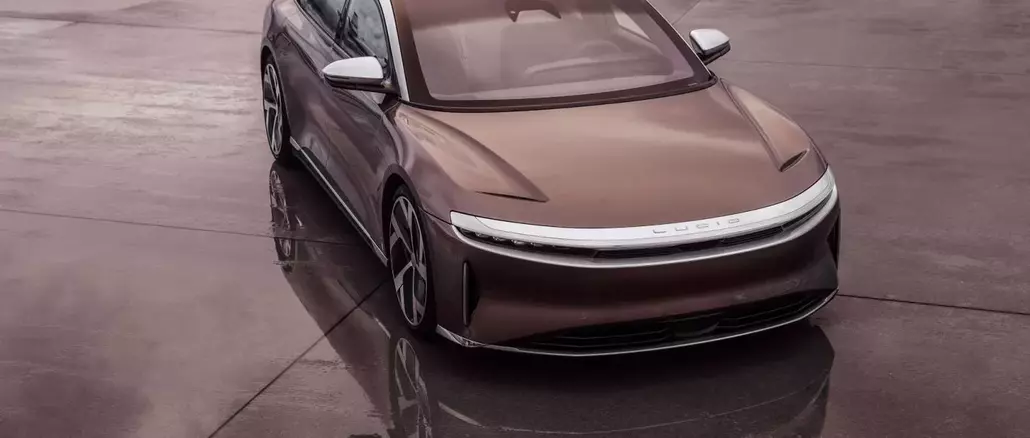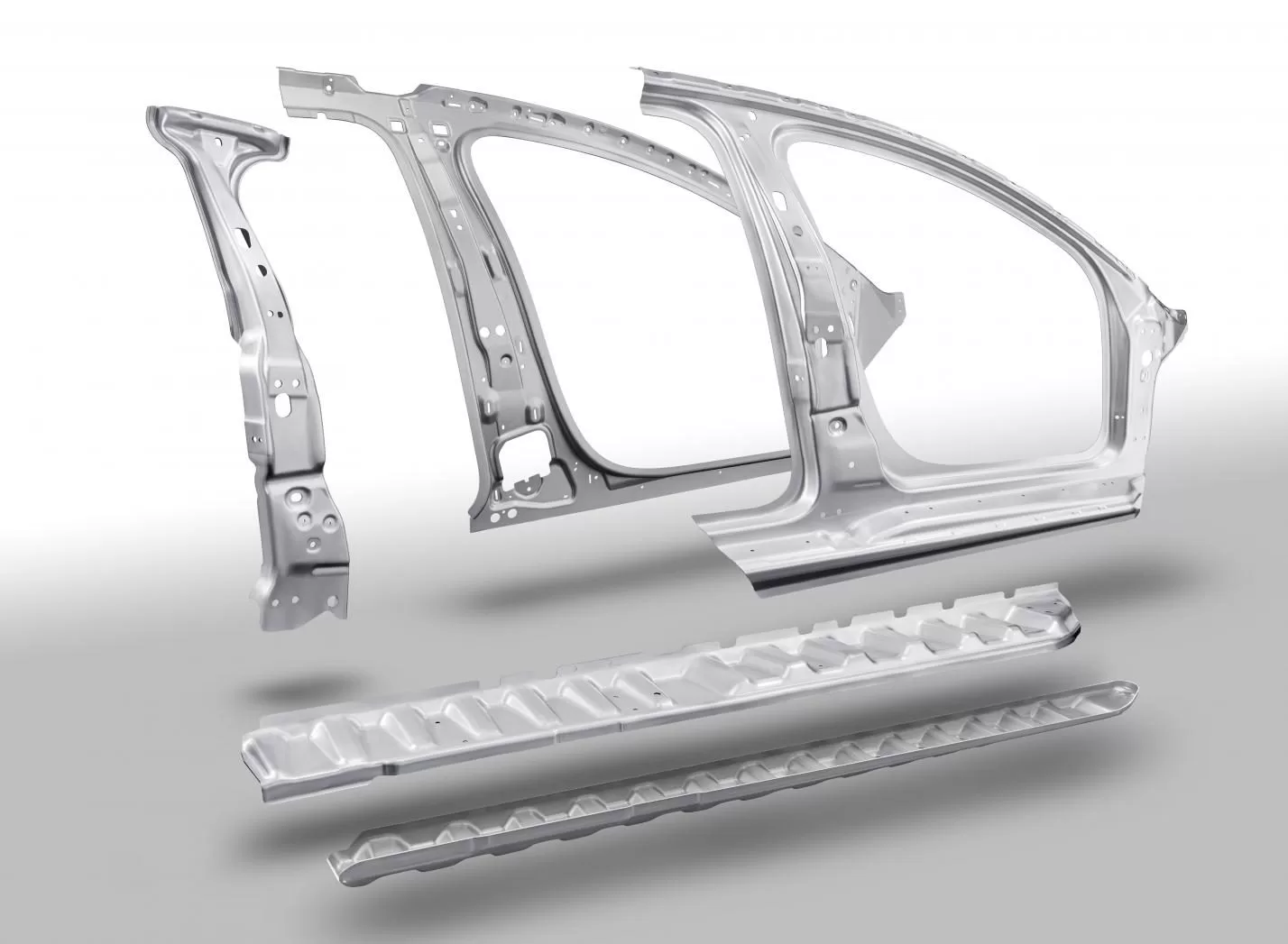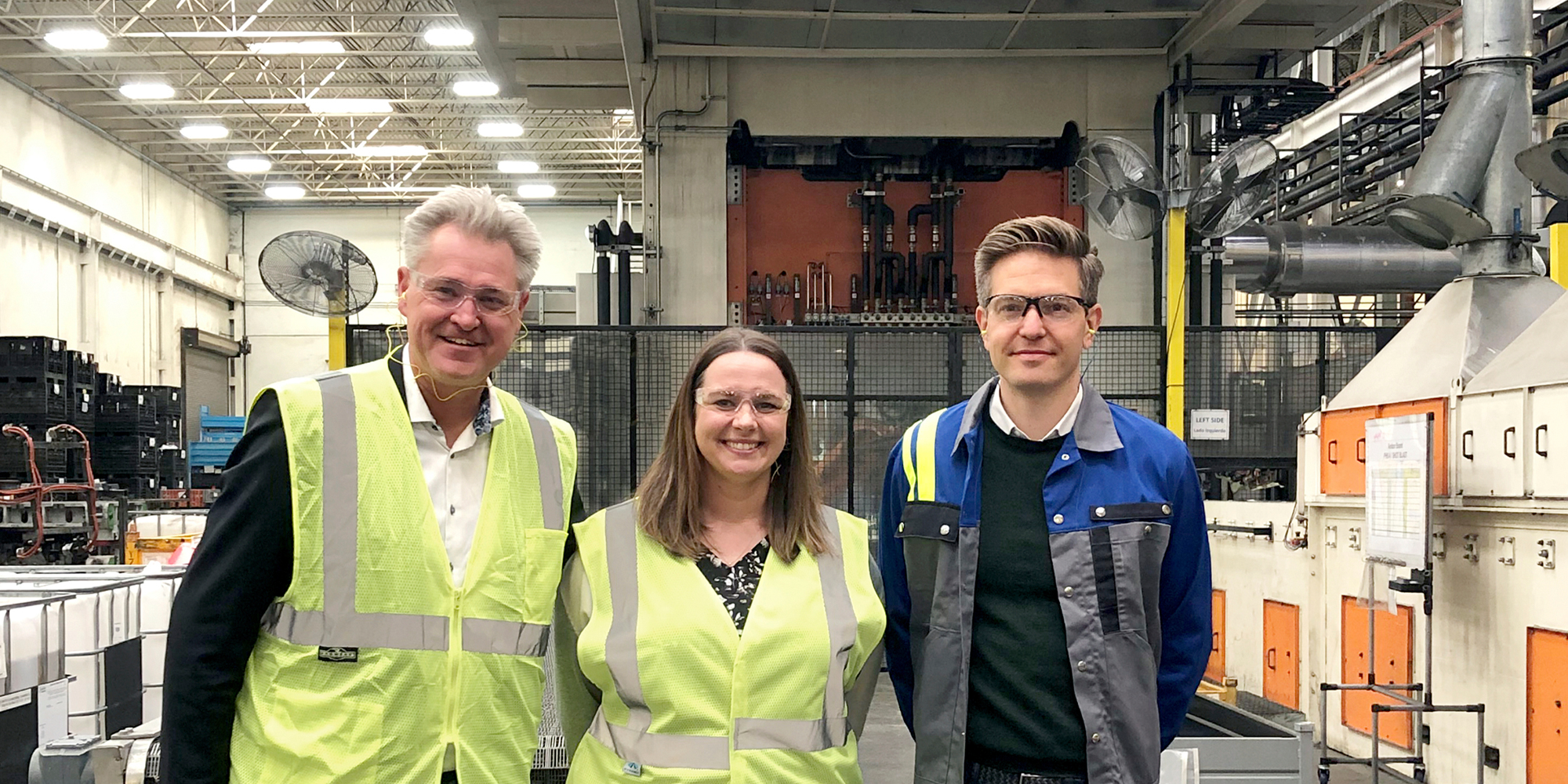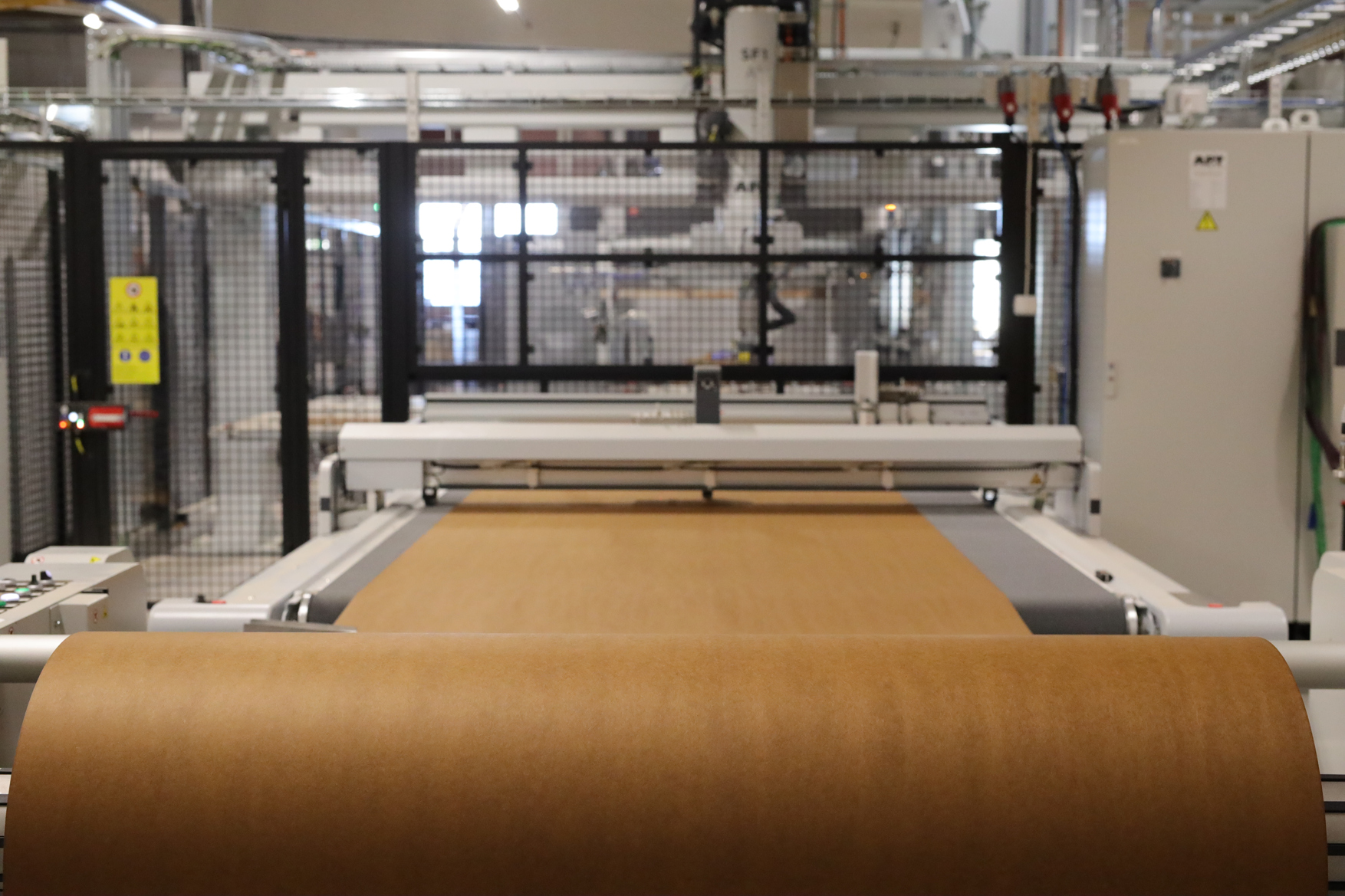
Producing cars that are lighter, more energy-efficient and safer is a challenge for the entire automotive industry. U.S. electric car manufacturer Lucid Motors has chosen a new technology to meet this challenge.
The Lucid Air, launched in 2021, consists of several lightweight components made of hot-formed high-strength aluminum that were developed, manufactured and industrialized in collaboration with AP&T and the Fischer Group.
“We are very proud to have been involved in the realization of this fantastic car. Lucid Motors is one of the first car manufacturers in the world to use hot-formed high-strength aluminum components produced with our technology. This makes Lucid Motors’ success an important milestone for us as well,” says a delighted Dr. Christian Koroschetz, Chief Sales Officer at AP&T.
In 2015, Lucid was looking for innovative technologies to manufacture crash-relevant parts such as door frames, B-pillar stiffeners and battery pack protection components. The company turned to AP&T.
An exciting challenge
Lucid presented AP&T with a number of part and process requirements that drove the team to develop new and advanced processes to ultimately manufacture products with low weight, high formability, strength and ductility in high volumes.
At that time, AP&T was intensively involved in innovation projects that investigated how high-strength aluminum could be used to produce car body components with low weight and high strength. As a direct result of these projects, Lucid selected AP&T to supply the Lucid Air.
“AP&T presented a promising new technology. The potential benefits were considerable, as hot forming enabled the production of complex part geometries with high-strength aluminum. Thanks to the combination of high formability, high strength and low weight, the design of the parts could actually be optimized. This made it possible to use the installation space more efficiently and achieve a high level of collision safety and low energy consumption, which benefits the end customer,” says Eric Bach, Senior Vice President of Product and Chief Engineer at Lucid.

© Fischer Group
Simulations and prototype tools
During 2017, development work picked up speed through the use of computer aided engineering. AP&T’s forming technology experts performed FEM simulations of the sheet metal forming process, which identified potential risks of cracking and wrinkling during the forming process. Lucid engineers used feedback from these simulations to improve the design of the body components.
In the same year, AP&T presented the first complete production line for hot forming of high-strength aluminum to demonstrate the potential of the new technology. The innovation won the prestigious Altair Enlighten Award. This recognition confirmed that AP&T was on the right track and added momentum to the collaboration with Lucid Motors.
Testing was conducted in 2019 and 2020 to validate the robustness of the process and obtain test data. While the design of a component is critical to meeting crash requirements for the body, strength, elongation and wrinkling during a crash also play a critical role. Lucid’s materials engineers and body designers worked with AP&T’s sheet metal engineers to determine the ideal materials to meet the required part specifications.
At AP&T’s test facility in Ulricehamn, Sweden, numerous tests were carried out with various high-strength aluminum alloys from different suppliers. The team implemented the parameters recommended by these material suppliers into the production process. In this project phase, the optimum material, the process control during forming and the heat treatment parameters were determined. The robustness of the process was validated through an intensive experimental study that included materials testing in the suppliers’ test laboratories and extensive component testing by Lucid’s materials engineers.
Material and failure models required to perform FEM crash simulations were reviewed by Lucid development engineers. Lucid received test samples to calibrate the models, which were taken from finished components that had been through the entire process route in AP&T’s production line.
Once the best performing materials were selected, prototype tooling was provided by AP&T. Prototype parts were manufactured on AP&T’s production line to build Lucid’s beta prototype and release candidate (RC), which underwent Lucid’s rigorous component and vehicle testing. Expectations were met, giving AP&T the confidence to continue the work and focus on industrializing the technology.
“Thanks to AP&T’s FEM simulation models for sheet metal forming, the necessary production capacities were made possible in a very short time frame. By using simulation models that had been optimized in various research projects, the time required for the tooling was significantly reduced. As a result, AP&T was able to provide several production tools within a very short time,” reports Dr. Michael Machhammer, Manager of Development Forming Processes & Tooling at AP&T.
Large-scale production
The question now arose as to who should take over large-scale production. Based on its past successes and long-standing relationship, AP&T recommended Fischer Group as a manufacturing partner to meet Lucid’s production requirements.
“Our relationship with AP&T goes back 20 years, and we regularly exchange ideas for innovative forming processes with their R&D team. About five or six years ago, AP&T introduced the benefits of hot-formed aluminum, which piqued our interest in looking more closely at this technology. We are constantly looking for new areas and applications to which we can bring our knowledge of tool-assisted forming and our expertise as a supplier to the automotive industry. This gave us the opportunity to do just that,” says Dr.-Ing. Stefan Geißler, Managing Director at Fischer Hydroforming and Key Account Manager for the cooperation with AP&T and Lucid.
With the right partners in place, AP&T and the Fischer Group began planning the industrial production of Lucid components at Fischer’s Achern site in Baden-Württemberg. While AP&T relocated the existing servo-hydraulic press and tooling to Achern, production at the Ulricehamn plant started immediately during this transition period, allowing the project to stay on schedule.
Lucid and AP&T also worked closely with Fischer to fine-tune the heat treatment parameters to ensure that the components met specifications while producing a high unit capacity.
“AP&T and our team did an excellent job together. By April 2021, we had increased the speed to the point where we could produce 1,500 component sets of door frames, B-pillars and battery pack covers for Lucid Air in Ulricehamn,” explains Thorsten Junge, Head of Business Development at Fischer Hydroforming.
At the same time, an intensive project was carried out at the Achern site to prepare for the installation of the new line and additional equipment, for example for 3D trimming, aging and cleaning. To create space, a brand new industrial building was erected.
“We also oversaw the raw material procurement. Although it was challenging, the end result was a success, and the line was moved from Ulricehamn to Achern in the summer and commissioned in December 2021,” Junge says.
The future of sustainable mobility
When deliveries of the Lucid Air, one of the world’s most technically sophisticated electric cars, began to customers in October 2021, there was reason to celebrate not only at Lucid’s global headquarters in Newark, California, but also in Achern and Ulricehamn.
The collaboration between Lucid, AP&T and Fischer Group was a great success – a promising technology was transformed into a commercially viable solution. This solution opens up opportunities for the entire automotive industry to reduce weight and improve safety.
Following its successful market launch, demand for Lucid Air continues unabated, which in turn boosts demand for hot-formed, high-strength aluminum components.
“Now it’s a matter of further optimizing the production process and increasing production volumes, which will also have a positive impact on the bottom line,” expects Robert Walton, director of purchasing at Lucid.
To meet Lucid’s needs, Fischer has far-reaching plans to begin manufacturing high-strength aluminum parts using innovative aluminum forming techniques near Lucid’s Casa Grande plant in Arizona.
“It’s great to be part of Lucid’s exciting journey and to know that our three companies have been able to work together to realize the world’s first large-scale application of this forming technology,” said Dr.-Ing. Stefan Geissler.
“As a proven partner to many players in the automotive industry, we are enabling the development of a more sustainable transport sector with safer, more energy-efficient vehicles that have less impact on the environment; this time based on an innovative technology in collaboration with a forward-looking car manufacturer. That’s great!” confirms Dr. Christian Koroschetz.
Web:
aptgroup.com/en




